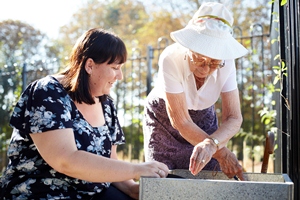

News from 11th July 2014, London: New analysis reveals that providing just a few hours of care visits a day for elderly people in their own homes may be costing the taxpayer more than it would to provide around the clock care in a care home. If the person has a need for more complex nursing care needs or they are receiving supplementary social benefits on top of basic state pension and attendance allowance, then less than two hours of domiciliary care every 24 hours could cost the public purse more than a full time care home place.
Authorities tend to offer domiciliary care support, provided by mobile carers visiting people in their own homes, because it is widely thought to be the least expensive option but for many elderly people it is not the best way to meet their care needs and, when all the hidden associated costs are added, it is often not best value for the public purse.
Around 600,000 people in the UK receive home care, with the overwhelming majority being funded by local authorities.
People who have home care funded by local authorities and who are receiving basic state pension and attendance allowance need only require a carer in their home for a total of about three and three quarter hours out of every 24 hours for the total cost to the taxpayer to be comparable or more expensive than it is to provide around the clock care in a care home.
If the person is receiving more complex nursing care or receiving additional social support such as pension credit and housing benefit then providing between one and three quarter and two hours of domiciliary care every day is likely to cost the taxpayer as much as it would to provide a care home place.
When a high level of care is required, the care home will almost invariably be a more cost-effective and much safer option.
These calculations are based on typical costs of nursing care in an independent sector care home of circa £583 and typical costs of independent sector domiciliary care of circa £14.90 per hour. If the domiciliary care is delivered directly by the local authority then the hourly cost typically is more than double the independent rate.
Ian Smith, Chairman of Four Seasons Health Care, the UK’s largest independent care provider said: people should be supported to live in their own home provided it is what they want and in their best interests. But the decision should not be driven by ideology or financial considerations, rather there should be an informed choice that includes understanding the real costs involved. For this to happen requires a more joined up approach to health and social care funding.
It is cheaper for Local Authorities to provide care for elderly people in their own homes because they have responsibility for financing the care support but under the current funding structure most of the other associated social benefits costs come out of central Government budgets.
The user experience survey conducted on behalf of the NHS Information Centre showed that more people living in care homes are satisfied with the service they get compared to those who receive domiciliary care. About three quarters (73%) of respondents in residential care were extremely or very satisfied with their quality of life, compared to 56% who receive home care.
![Carebase : A new approach to nursing, residential and dementia care [Link to Homepage]](https://carebase.org.uk/wp-content/themes/carebase-master/dist/images/logo.png)




